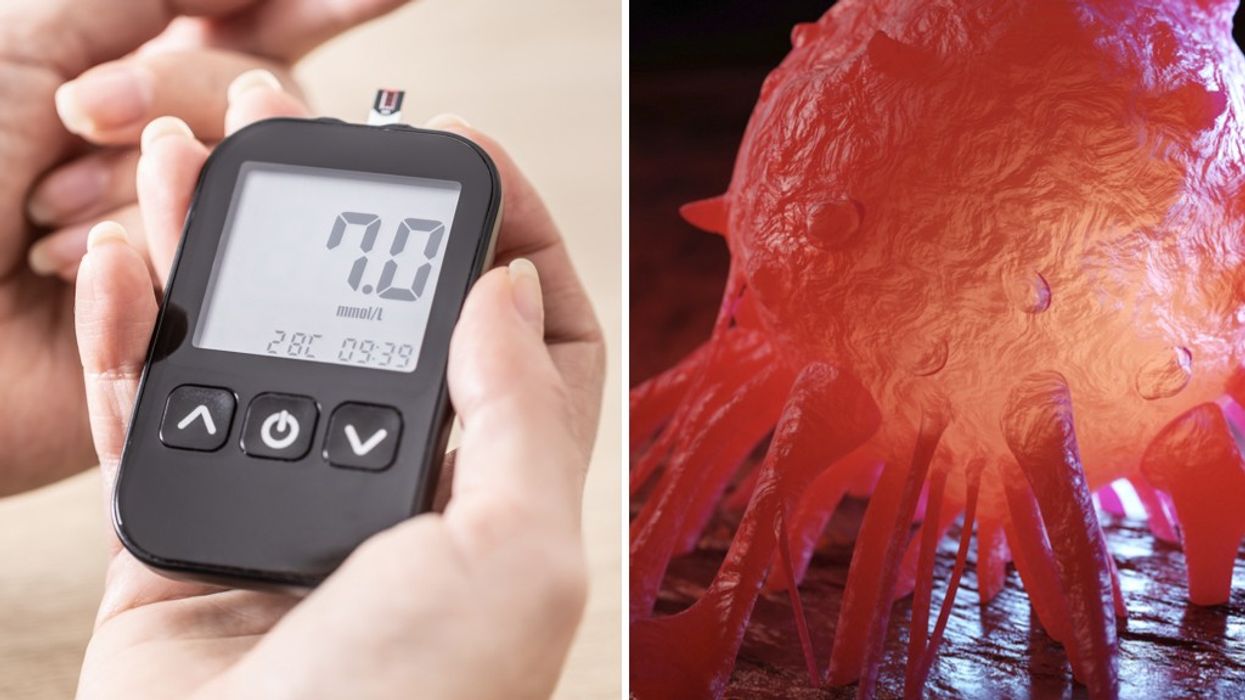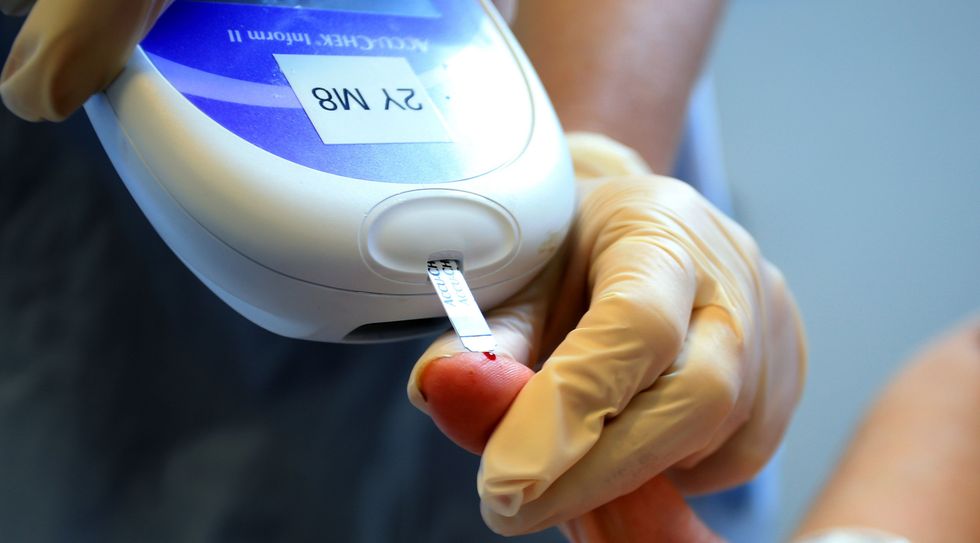Diabetes genetically linked to three cancers in breakthrough study: How to respond if you carry the gene

Type 2 diabetes genetically linked with breast, bowel and pancreatic cancer, scientists say
|Getty Images

- Type 2 diabetes genetically linked with breast, bowel and pancreatic cancer
- Two specific genetic variants have been identified for the first time
- Health experts say lifestyle choices can still modify the risk
Don't Miss
Most Read
Type 2 diabetes - which affects millions of Britons - has been genetically linked to cancer in a first-of-its-kind study.
The bombshell research showed how two genetic variants, which are the differences in sequences of genes, can simultaneously contribute to both health conditions.
Those affected can mitigate the risks by maintaining a healthy weight, eating well, keeping active and not smoking, says Diabetes UK, which part-funded the research.
The health body adds that the findings, which are yet to be peer-reviewed or published in a medical journal, help to highlight how people with type 2 are at increased risk of breast, bowel and pancreatic cancer and it could lead to new ways of preventing disease.
 | PA
| PAAre you at risk?
Being overweight or obese increases the risk of developing type 2 diabetes, with obese people having around a seven times greater risk of the condition than those of a healthy weight.
But other factors, such as not getting enough exercise and genetics, also play a role.
Hundreds of different genetic variants have already been identified as contributing to type 2, and it is known that genetics can increase the risk of cancer.
However, the genetic factors that contribute to the link between type 2 diabetes and increased cancer risk have been poorly understood until now.
In the new study, led by Professor Inga Prokopenko at the University of Surrey, experts looked at genetics to see if they could help to explain why some people with type 2 diabetes also get cancer.
They focused on the three cancer types that people with type 2 diabetes are at higher risk of developing – post-menopausal breast cancer, colorectal (bowel) cancer and pancreatic cancer.
The team used DNA data from more than 36,000 people from several European countries for the study, including people living with type 2 diabetes and cancer.
The researchers identified, for the first time, that two specific genetic variants are key contributors to people developing both type 2 diabetes and cancer.
One variant was linked to the risk of developing both breast cancer and type 2 diabetes, while the other affected type 2 diabetes and breast, bowel and pancreatic cancer risk.
LATEST DEVELOPMENTS

Maintaining a healthy weight can help to modify the risk of diabetes and cancer
|Getty Images
Therefore, the study concluded, that people carrying either of these genetic variants will have an increased chance of developing both type 2 diabetes and these cancers.
The work further identified 17 variants that directly increase the risk of developing type 2 diabetes, and then, via biological processes linked to type 2 diabetes, indirectly increase cancer risk.
It is thought this is because type 2 diabetes creates an environment that makes it easier for cancer to develop in the body, through higher blood sugar levels, higher insulin levels, obesity, inflammation and hormonal changes.
Doctor Elizabeth Robertson, director of research at Diabetes UK, said: “Type 2 diabetes and cancers are complex conditions with a multitude of factors increasing people’s likelihood of developing them.
“This research sheds new light on the role that genetically determined factors play in why some people with type 2 diabetes are also at risk of breast, colorectal and pancreatic cancer.
“In time, this could help doctors to identify people earlier who are at risk of both type 2 diabetes and certain cancers, while paving the way to better, more personalised ways to prevent and treat the conditions.
“It’s important to remember that people who have genes that are linked to type 2 diabetes and cancers can still take steps to reduce their risk of both conditions, by getting support to manage your weight, eating well, keeping active and not smoking.”

Peeing more than usual is a warning sign of type 2 diabetes
|Getty Images
What are the symptoms of type 2 diabetes?
Knowing the symptoms of type 2 diabetes can start you off on your journey to putting the disease into remission and reduce the attendant risks, such as those outlined in the new study.
Many people have type 2 diabetes without realising. This is because they may not always notice any symptoms.
According to the NHS, symptoms of type 2 diabetes can include:
- Peeing more than usual
- Feeling thirsty all the time
- Feeling very tired
- Losing weight without trying to
- Itching around your penis or vagina, or repeatedly getting thrush
- Cuts or wounds taking longer to heal
- Blurred vision










